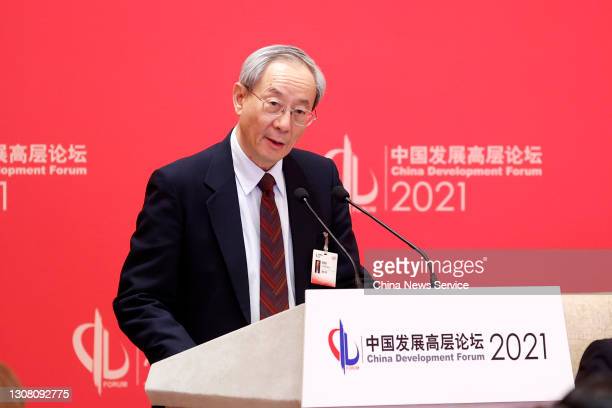
The US’ role as global leader may be declining, but it is resilient enough to bounce back, ex-deputy chief of Party History Research Centre tells forum in Sanya
China needs to balance opening up and safeguarding national interests, Zhang Baijia says, as he warns against an ‘inward’ shift
The US is capable of strongly overcoming all challenges and China should not bet against it, a Communist Party academic has advised.
Zhang Baijia, a former deputy director of the Party History Research Centre, also called on China to carefully balance its national security and opening-up goals, as he cautioned against an inward turn.
The remarks from Zhang come at a time of rising concerns over tensions between the world’s two largest economies, and as China’s state media loudly underlines the country’s superior strategy against Covid-19 relative to the West.
“The US’ role as a global leader is declining but, from historical experience, the US is also a country with a strong capacity for self-regulation. So it needs to be seen whether there will be an adjustment in the United States in the future,” Zhang told an economic development forum in Sanya at the weekend.
Chinese state media has increasingly played up the narrative of a rising East and declining West, highlighting China’s efforts at bringing the coronavirus spread under control, even though strict measures like border closures have fuelled worries of isolation as the pandemic looks set to drag on.
Zhang said it would be a mistake to believe that the US would set itself up to fail.
“It is important that we do not pin the hopes for our development on the inability of the United States to solve its own problems,” he told a Sino-US relations panel, according to footage from the forum released online on Tuesday.
As the world’s No 2 economy, China’s policy decisions could have a huge impact on economies big and small, as well as every element in global supply chains, Zhang pointed out, saying Beijing needed to make its goals, intentions and policies clearer when dealing with other nations.
Zhang, 73, is the son of Zhang Wenjin, a former Chinese deputy foreign minister who took part in premier Zhou Enlai’s talks with Henry Kissinger during the top US diplomat’s secret visit to China in 1971, which paved the way to normalised relations between Beijing and Washington.
Chinese leaders including President Xi Jinping have repeatedly pledged to further open up the country to foreign investment, and greater engagement to stabilise global supply chains.
However, concerns are growing around the world that a resurgent China faced with increasing hostility abroad may turn inward instead and decouple from the West.
US action to limit China’s access to American technology, including through trade restrictions, has further fuelled worries of a partial decoupling.
Beijing has to seek a delicate balance between opening up and safeguarding its national interests, Zhang advised.
“If we magnify national security too much, it will be practically impossible for us to remain open to the outside world, but if we do not pay attention to the issue of national security, it may bring us very great harm,” he said.
READ ALSO: Turkey arrested US diplomat for providing fake passport to a Syrian national
“In the context of economic globalisation and a more hi-tech and digital world, it is a new challenge to deal with the relationship between the two.”
The impact is already being felt by foreign business communities in China, who have voiced concerns over an “inward” shift, as Beijing appears to be looking for “self-sufficiency” in a response to rising challenges, from the pandemic and slowing economic growth to trade pressure from the US.
The European Union Chamber of Commerce said China had stepped up control over foreign firms’ supply of technology and components to Chinese clients citing national security concerns. This has created an increasingly difficult environment for foreign investment, the chamber said.












